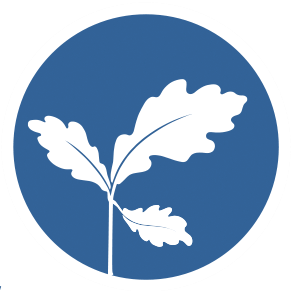Picture a Farmer...
Is this person you imagined a little older? That’s not surprising. Almost a third of farmers in Michigan are over age 65. Less than 10% are under 35.
In the 21st century, few choose farming as their livelihood. It’s hard enough for a daughter or son to take over for aging parents; it’s especially harder for someone without a farming background to break into the business. The good news is there’s a slew of resources available to help those who want to farm. MIFarmLink arose out of a need for additional ways to address the changing demographics of farming and rapidly disappearing farmland.
Mission and Vision
Our mission is to secure Michigan’s agricultural heritage for future generations by bridging the gap between farmers seeking land with farmland owners.
Our vision is a thriving and diverse agricultural economy where Michigan farmland remains in the hands of farmers.

History
Origins and Early Collaboration
In 2019, a coalition of 20 public and private farmland conservation leaders—including representatives from ALPAC, NAP, and the Washtenaw County Conservation District—began researching the development of a farm linking program to connect new farmers with available land.
Program Launch and Expansion
Ottawa County launched the MIFarmLink pilot program in 2021 with USDA grant funding. In 2022, Ottawa County partnered with Washtenaw County conservation leaders to secure additional support, and by 2023, MIFarmLink transitioned to the Washtenaw County Conservation District to expand its reach across southeast Michigan.
Statewide Platform
In October 2025, the Michigan Association of Conservation Districts became the new home for MIFarmLink, enabling direct outreach and support through Michigan’s network of 75 conservation districts.
MIFarmLink Team
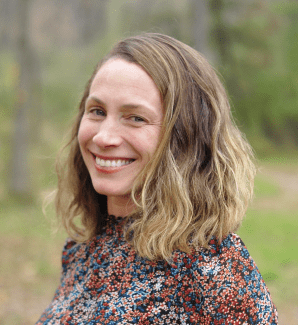
Jill Dohner
Program Director
Jill is working with a group of passionate agricultural advocates from across Michigan to grow the MIFarmLink program, an effort started in Ottawa County, moved to Washtenaw County, that helps protect farmland by connecting agricultural landowners looking to sell/lease land with beginning farmers looking for land to farm.
She graduated from Michigan Technological University with a Master's in Forest Ecology and Management. Jill owns Rustic Roots Farm where she tends honeybees, poultry, goats, a fruit orchard and garden, greenhouse production, and woodworking. Jill has served on the Washtenaw County Conservation District board for 10 years prior and now is a Farm Bureau member in District 3. She has experience in forestry at the Greening of Detroit and ReLeaf Michigan, as well as working with a diversity of farmers through the Washtenaw Farmer Cooperative. jill.dohner@macd.org

Alexa Tedeschi
Communications & Development Coordinator
Alexa is passionate about content creation and science communication, with a strong background in photography, video, and storytelling. She’s currently pursuing a Master’s in Biology through Miami University’s Project Dragonfly program and recently completed a wildlife media internship in South Africa, where she gained hands-on experience in photography, videography, and underwater filming. Alexa has worked with local government cable channels, schools, and nonprofits, using media to connect communities and educate. She’s thrilled to be part of the team and looks forward to helping grow the program in the year ahead! alexa.tedeschi@macd.org
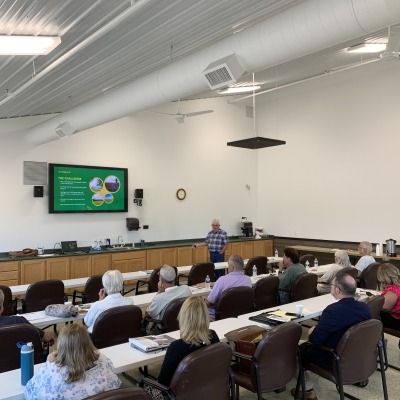
Volunteer With Us!
MIFarmLink is looking for volunteers to help grow our statewide farmland linking program! Whether you’re a college student seeking internship credit or an industry professional donating your skills, your time can make a big impact. From website development and outreach to grant writing and fundraising, there’s a place for you on our team—just 5–10 hours a week, with flexible, virtual check-ins. Apply through this form.
Advisory Committee
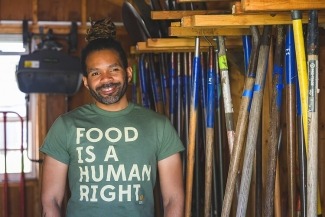
Julius Buzzard | Growing Hope Urban Farm
Julius Buzzard (he/him) is the Executive Director of Growing Hope and serves on the Washtenaw County Black Farmers Fund, Greenbelt Advisory Commission, and Food Policy Council, among other food and land access initiatives across Southeast Michigan. A proud Michigander who’s called Ypsilanti home since 2013, Julius has built his career in the nonprofit and education sectors, always weaving in his passion for growing and environmental justice. Rooted in community and guided by his belief that “relationships matter, food is for everyone, and the land will be our liberator,” Julius views equitable land access for local, small, and historically disadvantaged farmers as a vital step toward rematriation and a just food system.
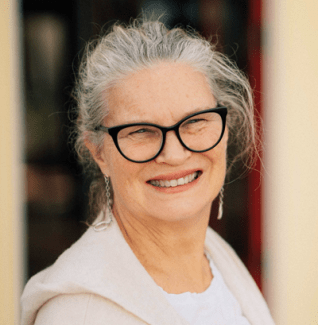
Kathy Sample | Argus Farm Stop
Kathy co-founded Argus Farm Stop in Ann Arbor with her husband Bill in 2014 to strengthen Michigan’s local food economy by providing a year-round market for farmers to sell directly to consumers. Through her work, she connects daily with farmers and sees land access as the top challenge for new and young growers. She and her husband also conserved a farm in Dexter, now leased to a young farmer. Before Argus, Kathy spent over 25 years in the chemical, medical gases, and automotive industries in marketing, strategy, and business planning. She holds an MBA from the University of Michigan and a bachelor’s degree in chemistry from Michigan State University.

Koffi Kpachavi
Koffi Kpachavi has over 25 years of leadership experience in the nonprofit sector, much of it with the YMCA directing camps and youth programs across the U.S., including in New Jersey, Washington, California, and Michigan. He holds a BA in English and French literature from the University of Lome in West Africa and is passionate about environmental issues and agriculture. The founder and former president of the Fremont Area Bee Club, Koffi is also an enology enthusiast who co-leads educational sessions on wine and geology in France and the U.S. He and his wife, Teresa, have three sons—Arnaud, Ian, and Yannick—and live in Michigan.
Contact Koffi: Staff - Koffi Kpachavi — Grand Traverse Conservation District (natureiscalling.org)
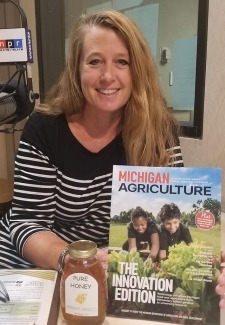
Becky Huttenga
Becky Huttenga, a lifelong Ottawa County resident and MSU Animal Science graduate, leads countywide initiatives in farmland protection, agriculture, and economic development. With a background spanning Purina Mills, restaurant management, and MSU Extension’s 4-H program, she found her passion for connecting agriculture and natural resources as Executive Director of the Ottawa Conservation District. A Farm Bureau member, Becky serves on numerous boards and councils, including MACD’s State Council and the National Agricultural Land Network Advisory. Among her proudest accomplishments are hosting two radio shows, founding Michigan’s first statewide land linking platform—MIFarmLink.org—and being named one of MLive’s Women Who Shape the State in 2023. She also serves as one of Michigan’s Land Transfer Navigators through a partnership with American Farmland Trust and USDA-NRCS.

Dr. Christie M. Poitra
Dr. Christie M. Poitra is a scholar-practitioner whose work bridges land-based knowledge with applied agricultural science. She is the Chief Operating Officer and Senior Partner at Nighthaven Woods, a multi-site specialty crop farm in the Great Lakes Region that integrates production agriculture with applied research in soil health, restoration, and ecological design. Formerly a leader within Michigan State University’s College of Agriculture and Natural Resources, Dr. Poitra has directed research, policy, and leadership programs supported by the USDA and NSF, and held faculty and governance roles at MSU. Holding degrees from UC Berkeley, UCLA, and MSU, she has been widely recognized for her contributions to research, leadership, and community engagement.

Amber Hokse
Raised in a small rural community on a hobby farm, Amber Hokse grew up with a deep appreciation for agriculture and the outdoors. Now married to a farmer and raising three children, she works alongside her husband and his family on their farm in Southwest Michigan. In addition to her hands-on role in farming, Amber is also a licensed real estate agent. Her passion for preserving Michigan’s farmland, lakes, and natural resources for future generations fuels her involvement with MIFarmLink and the broader agricultural community.

Simon Yevzelman
Simon Yevzelman operates Cedar Field Farm with his Wife Caitlin. They found CFF on MiFarmLink and hope to replicate their success with other landowners and farmers. Simon holds a degree in Microbiology, as well as sustainable aquaculture. Simon currently works with The Nature Conservancy, as a conservation specialist with the Michigan Agriculture team. His Specific areas of expertise are food safety, 3rd party farm audits, and fish farming.

Jamie Rye | Ottawa Conservation District
Jamie Rye brings over 20 years of leadership in regenerative agriculture, conservation, and nonprofit management. As Executive Director of the Ottawa Conservation District, he oversees conservation programs and partnerships across Ottawa County and serves on the MiFarmLink Advisory Committee to advance farmland preservation and farm succession planning. He has raised over $27 million for mission-driven organizations and led efforts in sustainable agriculture both in the U.S. and abroad, including directing an 87-year-old organization supporting West African farmers and farmers of color in the rural South. Previously, as Senior Communications Officer for the Carolina Farm Stewardship Association, Jamie developed farmer succession and land preservation strategies in collaboration with the Black Family Land Trust. Rooted in equity and sustainability, his work spans food systems development, conservation policy, and urban agriculture. After two decades working across the country, Jamie has returned to West Michigan, bringing his expertise in farmland preservation, nonprofit leadership, and coalition building back to his home community.

Rivka Hodgkinson | MACD
Rivka leads the Michigan Association of Conservation Districts (MACD) with a deep commitment to local leadership and community-based conservation. Her involvement began on the Ottawa Conservation District Board, where she saw firsthand the vital role districts play in protecting Michigan’s natural resources. She went on to serve as Region 7 Vice Chair and now as Interim Executive Director. With over 15 years of experience in strategic growth, outreach, and leadership, Rivka focuses on building partnerships, expanding resources, and advancing locally led solutions that empower communities to create lasting environmental change. Outside of work, she enjoys Michigan’s outdoors, reading, and cooking to unwind after a day of conservation work.

Jennie Koebel
Jennie Koebel is a lifelong farmer, raised on a dairy farm and married to a grain and dairy farmer. After raising three daughters on the family farm, they sold their dairy herd in 2017. Jennie served as County Administrator for Michigan Farm Bureau, gaining deep experience in agricultural operations, economic sustainability, and advocacy with elected officials. She now works as a concierge banker with Huntington National Bank and serves on the Michigan Rural Rehabilitation Corporation Board, supporting loans for agriculture and education for underserved populations. Committed to family farm continuity, Jennie and her husband have developed a succession plan for their children and have implemented sustainable practices recognized with the 2023 Berrien County Conservation District Environmental Stewardship Award.
